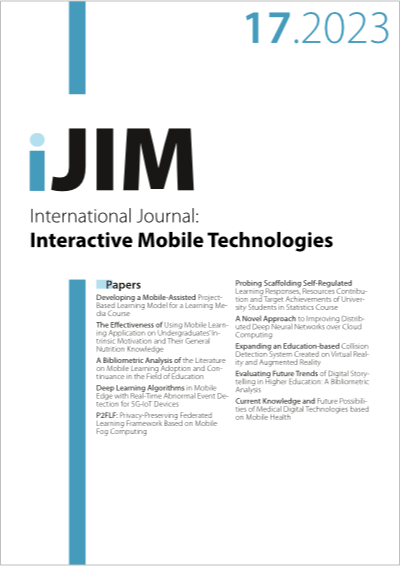P2FLF: Privacy-Preserving Federated Learning Framework Based on Mobile Fog Computing
DOI:
https://doi.org/10.3991/ijim.v17i17.42835Keywords:
Privacy-Preserving, Federated Learning (FL), Fog computing, Security, mobile IoTAbstract
Mobile IoT devices provide a lot of data every day, which provides a strong base for machine learning to succeed. However, the stringent privacy demands associated with mobile IoT data pose significant challenges for its implementation in machine learning tasks. In order to address this challenge, we propose privacy-preserving federated learning framework (P2FLF) in a mobile fog computing environment. By employing federated learning, it is possible to bring together numerous dispersed user sets and collectively train models without the need to upload datasets. Federated learning, an approach to distributed machine learning, has garnered significant attention for its ability to enable collaborative model training without the need to share sensitive data. By utilizing fog nodes deployed at the edge of the network, P2FLF ensures that sensitive mobile IoT data remains local and is not transmitted to the central server. The framework integrates privacy-preserving methods, such as differential privacy and encryption, to safeguard the data throughout the learning process. We evaluate the performance and efficacy of P2FLF through experimental simulations and compare it with existing approaches. The results demonstrate that P2FLF strikes a balance between model accuracy and privacy protection while enabling efficient federated learning in mobile IoT environments.
Downloads
Published
How to Cite
Issue
Section
License
Copyright (c) 2023 B. Ankayarkanni, Niroj Kumar Pani, Dr. M. Anand, Dr. V. Malathy, Bhupati

This work is licensed under a Creative Commons Attribution 4.0 International License.


